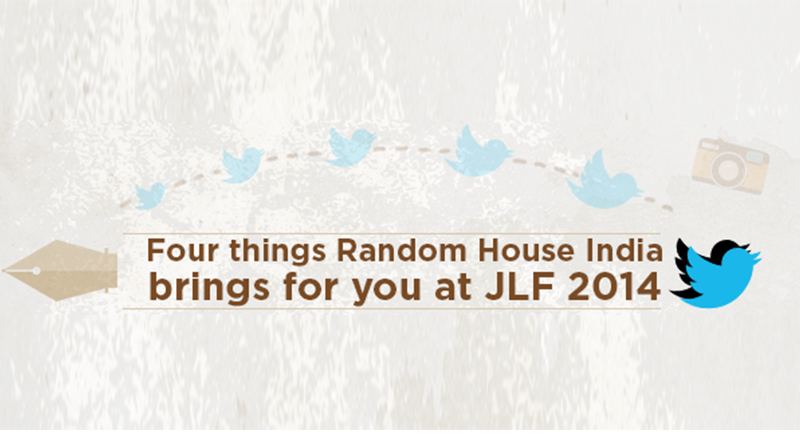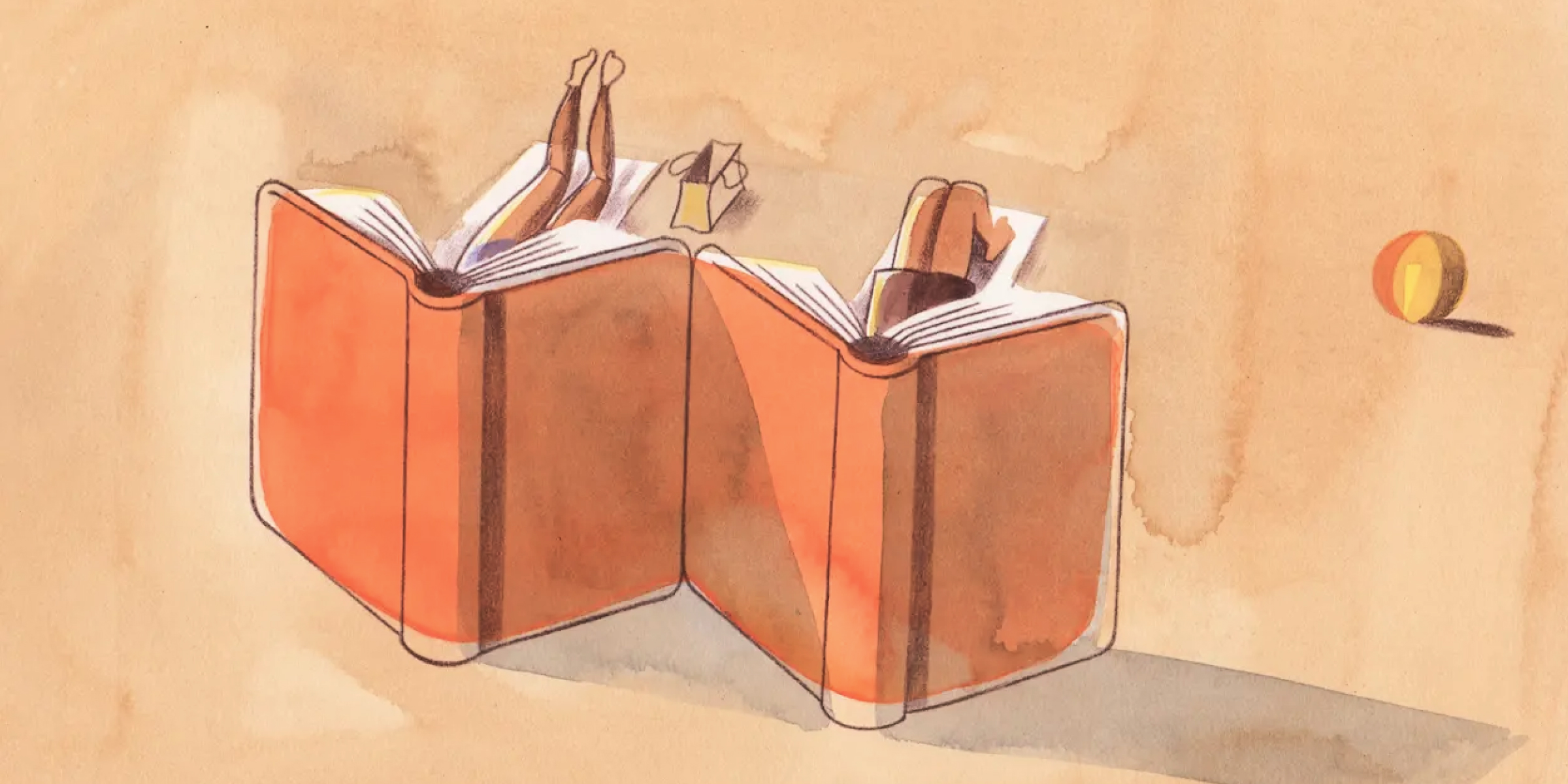
September is here, summer is ending and hopefully, any day now, you’ll wake up to a pleasant breeze. Days would no longer seem like they’re melting away, they would whistle through your hair instead. All plants and flowers and trees would nod in unison when you look at them and there’ll be something in the air that will make you constantly smile.
And days like these mean one thing and one thing only – it’s time to read!
So, here we are, bringing to you the freshest set of books releasing in September and waiting for you to sit with them and your coffees on your lovely balconies!
Here they are!
Between You, Me and the Four Walls

Between You, Me and the Four Walls
Moni Mohsin
The Social Butterfly is back with her signature wingbeat. The world may have moved at a rattling pace since her last outing but the lifestyles of Lahore’s literati, Dubai’s glitterati and London’s desi flutterati have more than kept pace. Earth-shattering events like wars, climate change, and the pandemic have nothing on the treachery of the maalish waali, Meghan Markle’s tiara and the mechanics of ‘sad make-up’. Spanning eight rollicking years from 2014 to 2021, Butterfly’s frank, funny diaries tell us how it is in the private lives of the haves and the have-mores.
Scandalously colourful and uniquely desi, the latest installment of the Butterfly series is delish.
Here and Hereafter
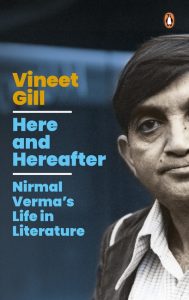
Here and Hereafter
Vineet Gill
How is a writer formed? Yes, through labour, commitment, perseverance, grit and various other things that we keep hearing about. But equally, a writer is formed through the workings of a particular kind of sensibility. As Vineet Gill attempts to understand this writerly sensibility in Nirmal Verma’s life and work, he finds that the personal and the literary are, on some level, inseparable.
In this masterly deep dive into the world of one of Hindi literature’s pioneers, Gill looks at the scattered elements of Verma’s life as ingredients that went into the making of the writer. The places he lived in, the people he knew, the books he read are all reflected, in Gill’s view, in Verma’s stories and novels. This is a work of intense readerly analysis and considered excavation-a contemplation on Verma’s oeuvre and its place in world literature.
Ask the Monk
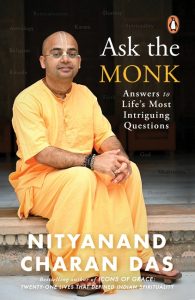
Ask the Monk
Nityanand Charan Das
Asking questions is an important part of learning as it provides a unique framework for thinking and opens doors to unexpected revelations for us. Digging into how or why things are the way they are, paves the way for enlightenment.
On the contrary, keeping the doubts to ourselves can keep us from truth, thus depriving us from valuable opportunities life has to offer. As human beings, we must enquire and keep doing so. But what kind of enquiries are we supposed to make?
In Ask the Monk, celebrated monk Nityanand Charan Das lucidly answers over seventy frequently asked questions-by young and the old alike-on topics such as karma, religion versus spirituality, mind, God, destiny, purpose of life, suffering, rituals, religion, wars and so on. These answers are extremely crucial to help you, the reader, embark on the journey of self-discovery and self-realization.
Unparenting

Unparenting
Reema Ahmad
Through her own awkward journey as a confused single parent, Reema Ahmad explores what it means to explore newer ways of bringing up children-ways that nurture their sense of innocence and curiosity while giving them the freedom to choose their own truths. Reema invites you to hop along as she and her son, Imaad, learn to laugh and make up stories about why penises shape-shift, the mysteries of pubic hair, the magic of adolescent crushes and the confounding maze of dating and sex. Join them as they explore these mysteries and other serious topics like abuse, adult relationships, divorce and dying-issues that adults often forget to wonder at and seldom question.
More than anything else, Unparenting is a vibrant, whacky testimony to a parent-child relationship where the child leads and the parent follows. Written in the form of deeply personal, engaging and often humorous essays, the book is a powerful reminder of what it feels like to be lost and misunderstood as a child, and how important it is to challenge what we think we know as parents.
On the Pickle Trail

On the Pickle Trail
Monish Gujral
Pickling is one of the oldest and healthiest methods of preserving and consuming vegetables and fruits. Pickles are usually fermented in a way that they aid digestion and improve gut bacteria. They enhance food flavours and are available throughout the year. However, most of us do not pickle things ourselves; instead, we buy them off the shelf. Packaged pickles do not have the same health benefits as the ones made at home and can do more harm than good.
In this book, Monish Gujral brings together a collection of 100 pickles to start you on your journey of pickling. These recipes are not only simple and easy to make, each also has health benefits. From the Italian Giardiniera (pickled vegetables) to the Israeli Torshi Left (white turnip pickle), from the Gari(Japanese ginger pickle) to the Cebollas Encurtidas (pickled onions from Ecuador), this book is a treasure trove of some of the best pickles from around the world.
Engineered in India

Engineered in India
BVR Mohan Reddy
A young man steps out of the precincts of IIT Kanpur in 1974 with a dream in his heart-to become an entrepreneur and contribute to nation-building. Undaunted by the dearth of experience and means to capital in pre-Liberalization India, B.V.R. Mohan Reddy’s enterprising spirit takes the long and winding road, never losing sight of his ambition. He gains overseas education on a scholarship and dons multiple hats for eighteen long years before embarking on his life’s mission at forty. A mission that propels the company he incorporated, Cyient, to pioneer and excel in outsourced engineering services and introduce the brand ‘Engineered in India’.
Engineered in India takes readers on an entrepreneurial rollercoaster ride, allowing them to see human truths with tools that let them breathe life into their business aspirations and experiments.
Sojourn

Sojourn
Amit Chaudhuri
An unnamed man arrives in Berlin as a visiting professor. It is a place fused with Western history and cultural fracture lines. He moves along its streets and pavements; through its department stores, museums and restaurants. He befriends Faqrul, an enigmatic exiled poet, and Birgit, a woman with whom he shares the vagaries of attraction. He tries to understand his white-haired cleaner. Berlin is a riddle-he becomes lost not only in the city but in its legacy.
Sealed off in his own solitude, and as his visiting professorship passes, the narrator awaits transformation and meaning. Ultimately, he starts to understand that the less sure he becomes of his place in the moment, the more he knows his way.
The Bellboy
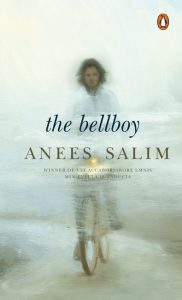
The Bellboy
Anees Salim
Latif’s life changes when he is appointed bellboy at the Paradise Lodge – a hotel where people come to die.
After his father’s death, drowned in the waters surrounding their small Island, it is 17-year-old Latif’s turn to become the man of the house and provide for his ailing mother and sisters. Despite discovering a dead body on his first day of duty, Latif finds entertainment spying on guests and regaling the hotel’s janitor, Stella, with made-up stories. However, when Latif finds the corpse of a small-time actor in Room 555 and becomes a mute-witness to a crime that happens there, the course of Latif’s life is irretrievably altered.
The Bellboy is as much a commentary on how society treats and victimizes the intellectually vulnerable as it is about the quiet resentment brewing against religious minorities in India today. With a mix of wry humour and heart-wrenching poignancy, the book narrates a young boy’s coming-of-age on a small island, and his innocence that persists even in the face of adversity and inevitable tragedy.
The Hidden Hindu 2

The Hidden Hindu 2
Akshat Gupta
The first battle is lost. The book of Mritsanjeevani is in the wrong hands but Nagendra’s plans are not limited only to immortality. What seemed to be the end of all wars was just the beginning of an incredible journey in search of a hidden verse. Om is still incomplete without the knowledge of his past, but he is not alone anymore. Two of the mightiest warriors of all time stand by his side. Two mysterious warriors stand unconditionally with Nagendra too or is there a hidden agendas behind all the allies? Who are LSD and Parimal in real and who is Om? Tighten your seat belts for an adventure in search of words that hold a bigger purpose than even immortality for Divinities and Demons.
The Newlyweds
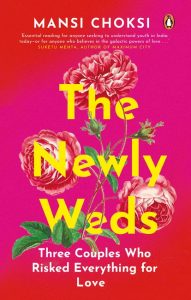
The Newlyweds | Mansi Choksi
undefined
India is teeming with a young population that was born post-liberalisation, grew up with the internet, witnessed the advent of smartphones and social media, and is well-versed in the many dialects of a globalised pop culture. But when it comes to love and marriage, they’re often disconcertingly expected to adhere to the orthodoxy of a bygone era. It’s this conflict between the parallel paths of alleged tradition and mutinous modernity that drives journalist Mansi Choksi’s The Newlyweds.
Through vivid, lyrical prose, Choksi shines a light on three young couples who buck against patriarchy-approved arranged marriages in the pursuit of love, illustrating the challenges, triumphs and losses that await them.
Zigzagging through India and its smorgasbord of cultures, each chock-full of its own unwritten commandments and sanctions, Choksi introduces our brave newlyweds. First, there’s the lesbian couple forced to flee for a chance at a life together. Then there’s the Hindu woman and Muslim man who escaped their families under the cover of night after being harassed by a violent militia group. Finally, there’s the inter-caste couple doing everything to avoid the horrifying fate of a similar duo murdered for choosing to love.
Engaging and moving, The Newlyweds raises universal questions such as what are we really willing to risk for love? If we’re lucky enough to find it, does it change us? For the better? Or for the worse?
Leaders in the Making

Leaders in the Making
Arvind Agrawal, T.V. Rao
Leaders in the Making includes in-depth interviews of thirty HR leaders, drawn from public as well as private sectors. These life stories provide highlights of their early childhood, education and career over the years, and touch upon the inflexion points in these leaders’ lives, their major influences and the lessons they learnt to become who they are. The authors provide an analysis of these thirty stories to establish a pattern of the life journeys, competencies and values these leaders displayed.
The book has excellent lessons for parents, heads of schools and colleges, teachers, managers, HR leaders, CXOs and CEOs. It also includes self-help tools to assess competencies, values and the careers of readers so that they can plan for self-development.
The Many Lives of Mangalampalli Balamuralikrishna
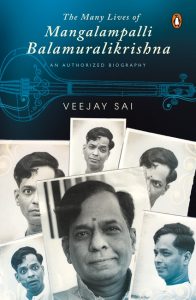
The Many Lives of Mangalampalli Balamuralikrishna
Veejay Sai
Mangalampalli Balamuralikrishna, an internationally renowned Carnatic musician from the illustrious musical lineage of composer Saint Tyagaraja, wore many hats in his lifetime. Having made a stage debut at the age of seven, he was hailed as a child prodigy. From then till the time he passed away, at age eighty-six in 2016, he continued to be in the spotlight, not just for his extraordinary talent and versatility as a vocalist and multi-instrumentalist, but as a composer, playback singer and even, briefly, as a character actor.
He was a primary school dropout, a teenage poet and composer, a restless mind, a polyglot, a legacy upholder, a wordsmith, an ice cream lover and a pathbreaker. This is a story of the many lives of Dr Mangalampalli Balamuralikrishna.
Veejay Sai’s in-depth research into his life and work led him deep into unseen archival material and across the Carnatic musical landscape of erstwhile Andhra Pradesh, Karnataka and Tamil Nadu. Fortified by interviews with his family members, disciples and peers, The Many Lives of Mangalampalli Balamuralikrishna, a definitive biography of the musical genius, is not only a revealing account of the personal traits and facets of an unparallelled genius, but is also a portrait of India’s classical music world, a place as much of beauty as of untrammelled egos.
Afterness

Afterness | Ashok Ganguly
undefined
In his memoir, former Hindustan Unilever chairman Ashok Ganguly invites readers to journey with him as he looks back fondly on his extraordinary life – from his childhood to his upbringing in the metropolitan Bombay of the 1930s, to his PhD in Illinois and his eventual return to India. After joining Hindustan Unilever’s R&D department, Ganguly quickly rose up the ranks as a talented young professional, eager to discover and learn new things. The story spans across eighty years of his life, its edges tinged by the tumultuous events in India in the twentieth century, and interspersed with fascinating people, from the mysterious Kishen Khanna to encounters and friendships with well-known historical figures such as Mother Teresa and Rajiv Gandhi.
Ashok Ganguly’s journey was interspersed with failures, but he doesn’t shy away from talking about these and the sacrifices that went on to define his life. Honest, reflective, personal and revelatory, Afterness provides valuable insight into his thinking process and decision-making skills that enabled Ganguly’s meteoric rise and sustained his legendary career.
Samsara
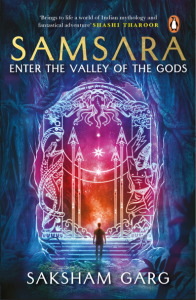
Samsara
Saksham Garg
Phones stop working. Smartwatches die. And arms start glowing with blue scars. This is what happens to Aman Chandra and ten other Souls of Samsara when they are kidnapped from modern-day India and transported to a hidden valley in the Himalayas. In this realm of magic, home to Hindu gods, immortal yogis and mythical beasts, the mission is clear for the Souls of Samsara: to learn the ancient art of yogic sorcery and prepare for a treacherous journey not many can survive.
But why must they go on this journey? And how are the gods connected to it all?
Before they get any answers, the Souls of Samsara realize that there is a larger scheme at play. The king of the gods has passed a controversial order. And Aman must make a tough decision that will change not just his life but the fate of an entire nation…
The People of India
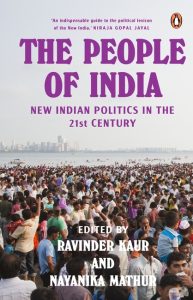
The People of India
Ravinder Kaur, Nayanika Mathur
‘The People’ and ‘New India’ are terms that are being invoked freely to both understand and govern India as she enters her 75th year of post-colonial nationhood. Yet, there is little clarity on who these people of India really are, what they do, their desires, histories and attachments to India. Similarly, the phrase ‘New India’ is used far
too loosely to explain away a dangerously confounding politics.
In this book, some of the most respected scholars of South Asia come together to write about a person or a concept that holds particular sway in the politics of contemporary India. In doing so, they collectively open up an original understanding of what the politics at the heart of New India are-and how best we might come to analyse them.
This brilliant collection put together by Ravinder Kaur and Nayanika Mathur includes original and accessible essays by leading social science and humanities scholars of South Asia.









